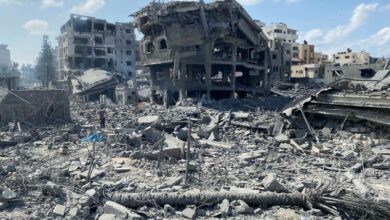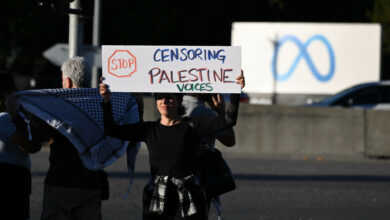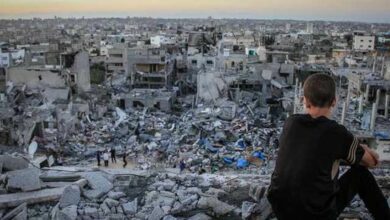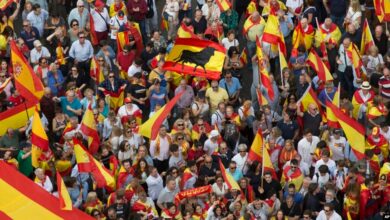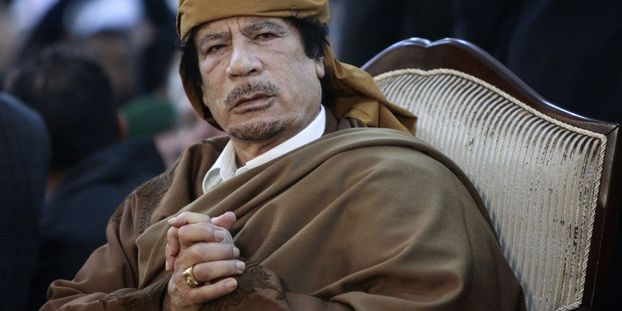
Although he was North African, he looked beyond the southern borders of North Africa. Former Libyan leader Muammar Khaddafi dreamt first of an Arab and then of an African federation of which he would become a leader until he proclaimed himself the “African King of Kings,” a title that was granted to him by African tribal leaders in 2008.
He tried as a young leader of the oil-rich nation to forge an alliance rooted in Arab nationalism with the Egyptian Arab nationalist leader Jamal Abdel Nasser. During these days he tried with Bourguiba, the Liberal and secular leader of neighbouring Tunisia, to fuse their countries into one political body that did not live long. A similar union was tried with Egypt to no avail.
Khaddafi’s quest for Arab and African integration was not translated into independent regional institutions as much as it was rooted in what he described as struggle against Western imperialism.
When people discuss continental or regional integration in Latin America, that is, that form of integration that counters U.S.-led Globalization, there is one name that surfaces: Hugo Chavez, the Venezuelan leader who was not only an ally but also a “brother,” in his own words in 2011, to Khaddafi. Together, they called in 2009 for an alliance between Africa and South America that would lead to the creation of strong transnational institutions that defend the interests of the countries of the South. Yet, this cooperation was never consolidated in strong institutions.
Latin American unity and integration in its “anti-imperialist version” was the idea of Hugo Chavez, the late Venezuelan president, who imagined, designed, and called for Latin American integration, setting it into motion by rallying support from other Latin American leaders like Evo Morales, Fidel Castro, and Rafael Correa.
If Khaddafi used Libya as a base for intervention and operations in other countries, the most famous of which was the 1988 bombing of a U.S. civil aircraft while in flight over the Scottish town of Lockerbie, allegedly blamed on 2 Libyan nationals, Chavez’s record of foreign interventions is scant, limited to few accusations thrown by his Columbian neighbours.
In the MENA region, however, the Arab League, with its internal divisions and conflicts, can serve anything but as an engine for Arab integration. Earlier attempts by nationalist leaders like Jamal Abdel Nasser of Egypt, Syria’s Hafez Al-Assad, and Saddam Hussein of Iraq were not of better outcome as Arab nationalism turned into nationalisms that sometimes embodied religious and sectarian doctrines contradictory with nationalism.
Yet, it seems what the MENA region needed was another Kadhafi after the latter turned to Africa. In February 2011, the Globe and Mail acknowledged that despite the absurdity of the act that Khaddafi did when he claimed himself the “king of African kings,” the Libyan leader had an impact on Africa. This European-style pan-African organisation that Khaddafi dreamt of and called “The United States of Africa” will not find another enthusiast advocate soon.
Khaddafi provided a stabilizing force in Libya and in some African countries. He used the huge oil revenues of his country to pay peace keeping missions and to build infrastructure in countries like Mali and Senegal, just as Chavez offered to help ensure oil sufficiency in Africa and South America in 2009.
He also mediated between rival factions in Congo and elsewhere to help overcome divisions. Probably, the effort he did tirelessly was bigger and more tiresome than that done by Chavez. But Leftist Latin America was easier to unite temporarily due to the region’s accumulated political maturity and stronger institutions after the 1990s wave of democratization.
The AU force that was battling Islamist radicals in Somalia was sponsored by Khaddafi’s Libya that provided 20 % of the African Union budget. It goes without saying that Khaddafi wanted his United States of Africa with its unified currency and passport for himself and his family, but like Chavez in Latin America, he was the only one who believed in the idea. Now, 11 years after he was killed, Libya is still torn between armed rivals. Millions of Libyans continue to live in neighbouring countries and Europe. Some Libyan children today have never visited Libya.

